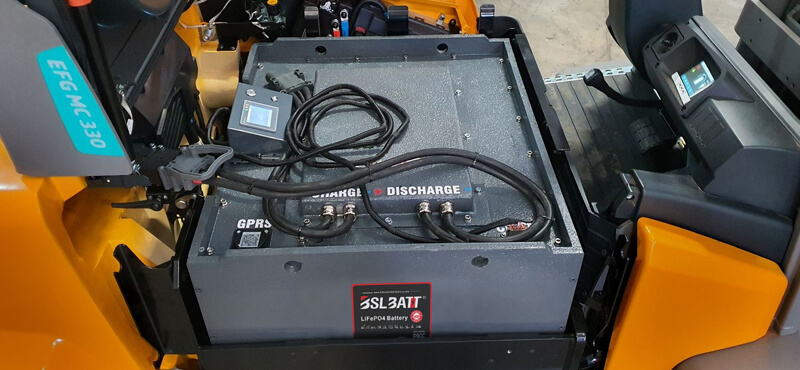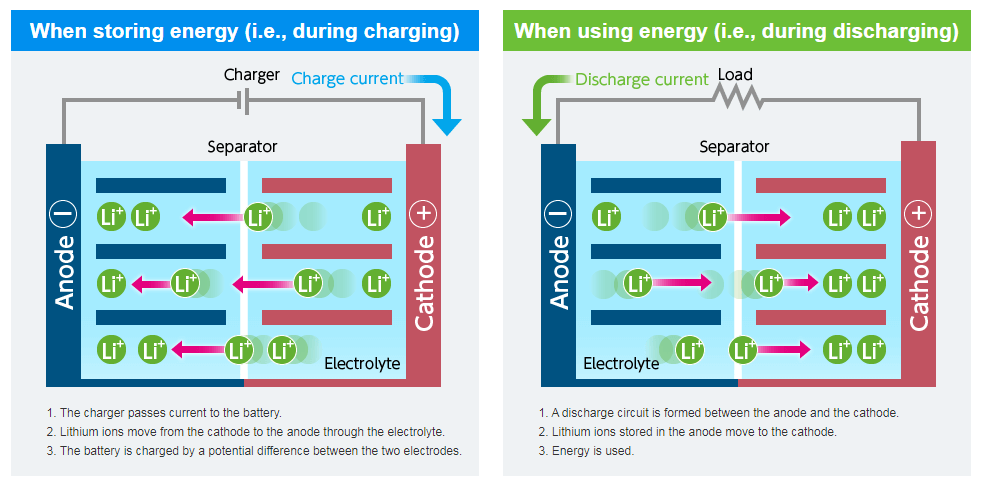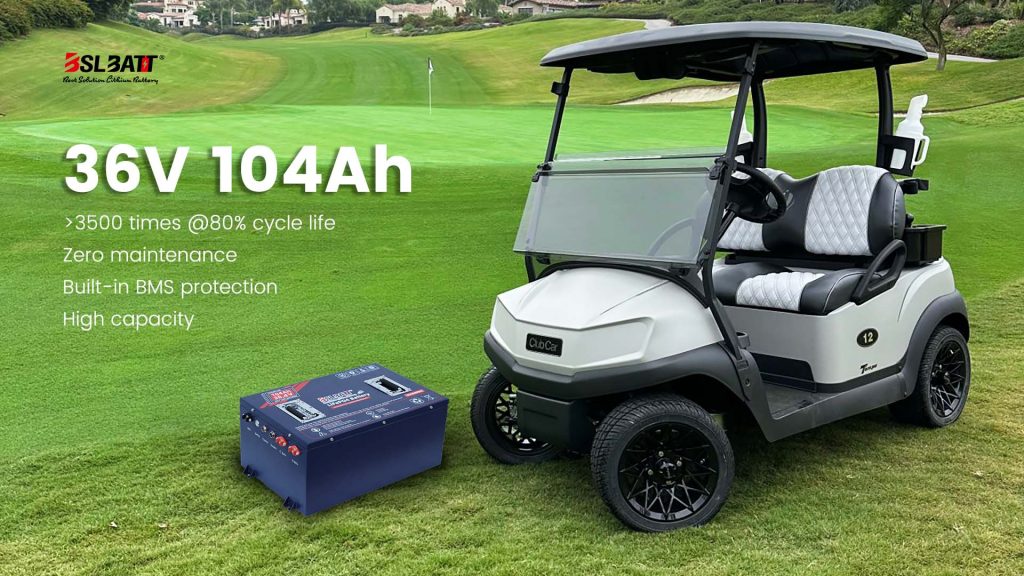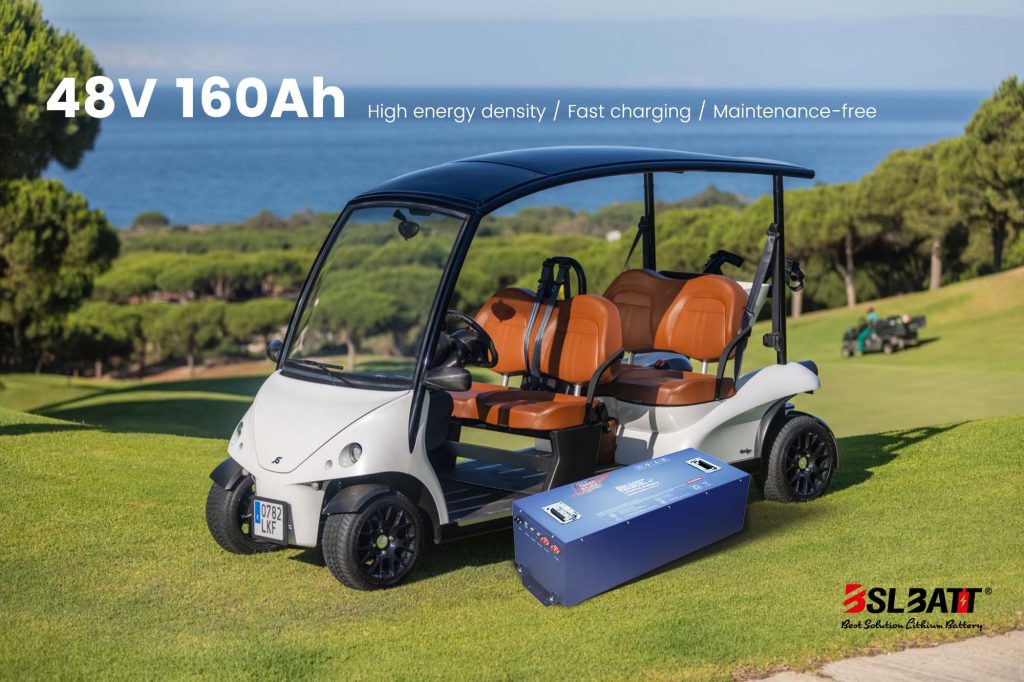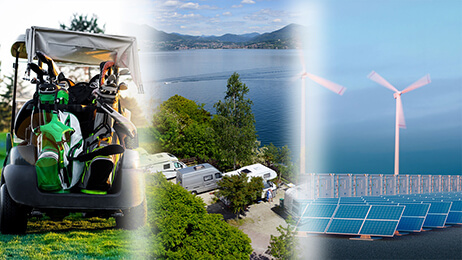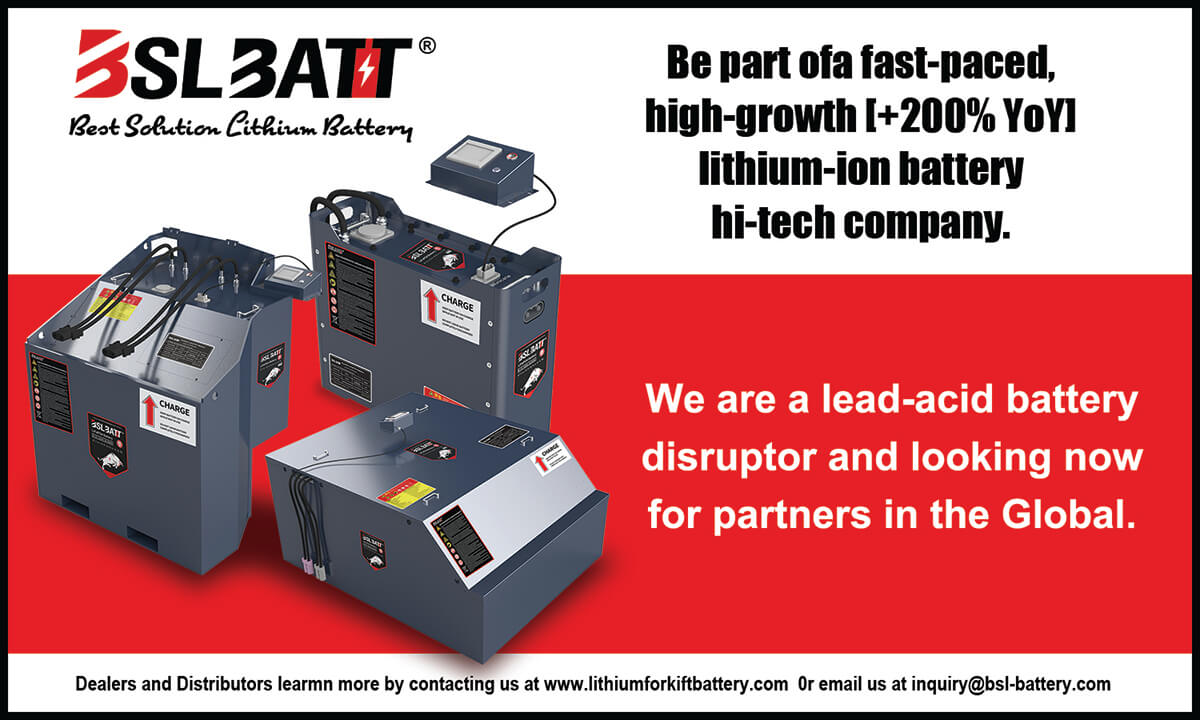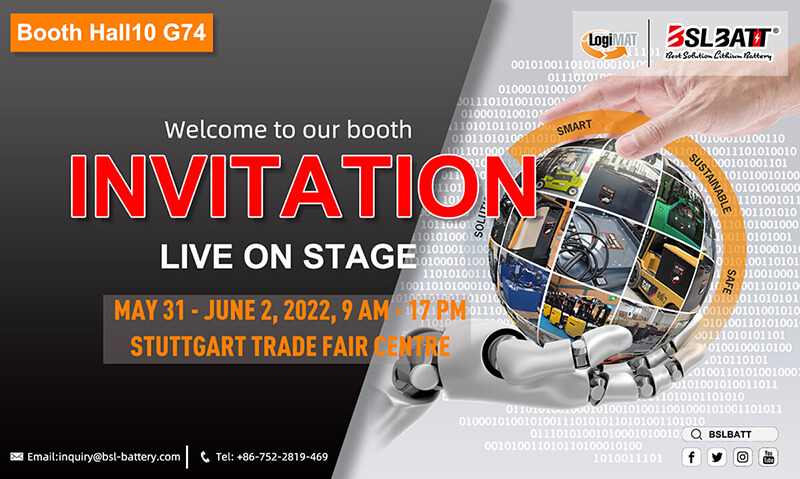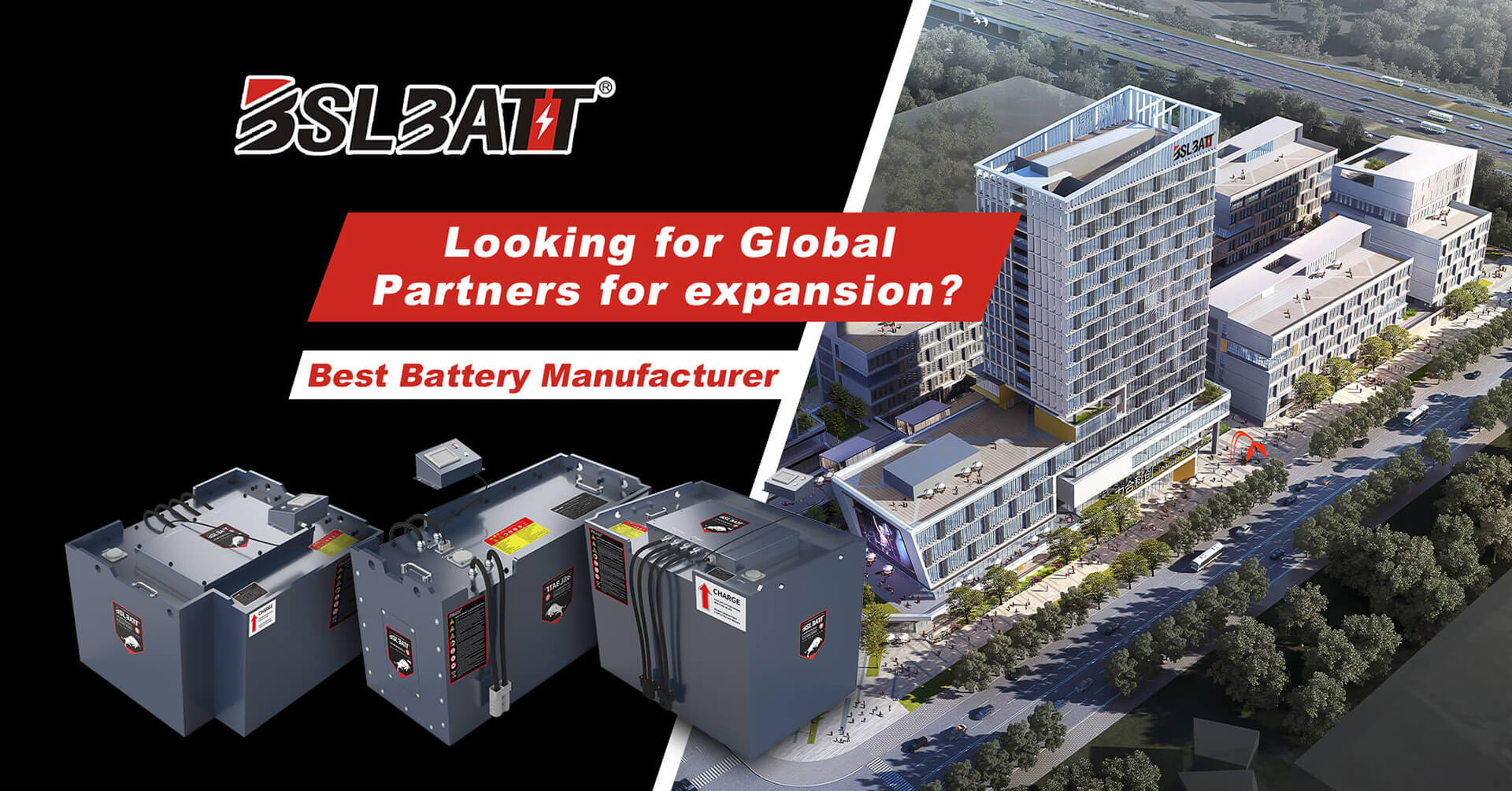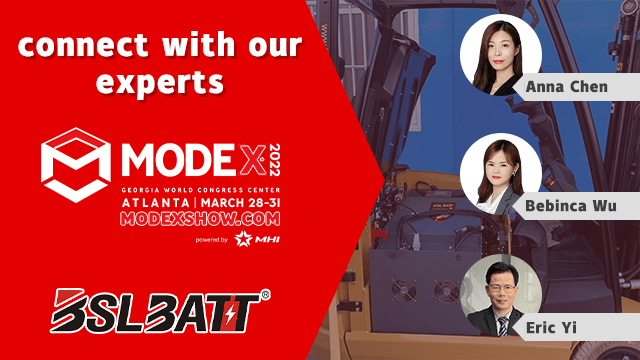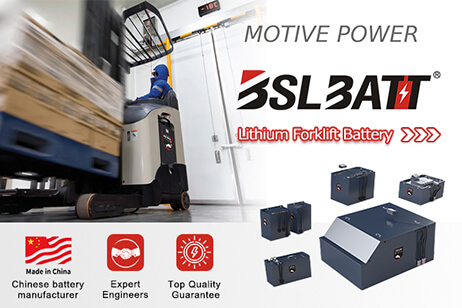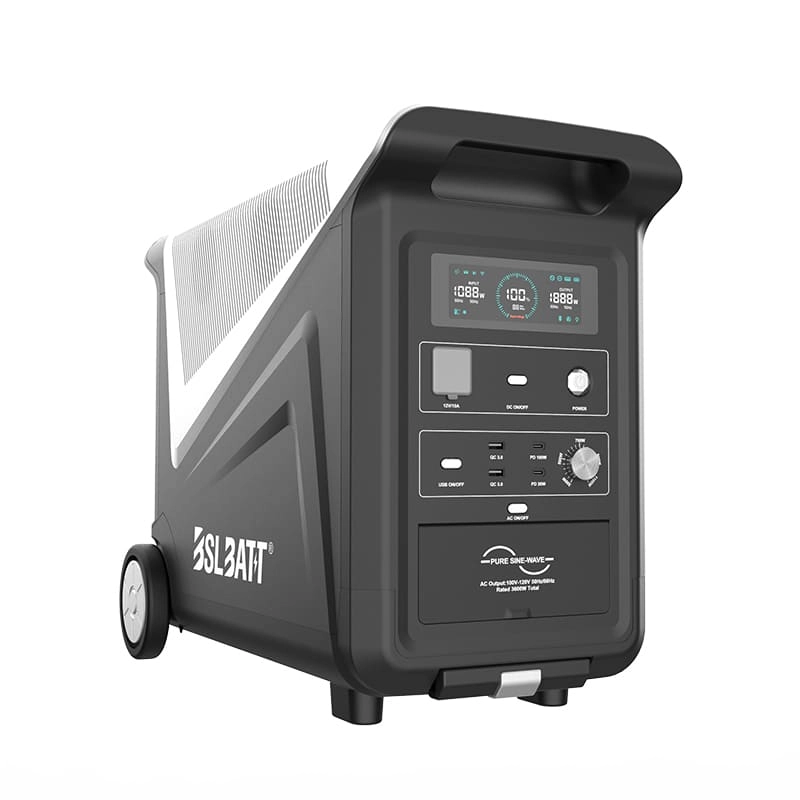Industry Application
Product Type
How Does a Lithium-ion Battery Work?
Power to go—that’s the promise batteries deliver. They give us all the convenience of electricity in a handy, portable form. The only trouble is, most batteries run flat very quickly and unless you use a specialized charger, you then have to throw them away. It’s hard on your pocket and bad for the environment as well: worldwide, we throw away billions of disposable batteries every single year. Rechargeable batteries help to solve this problem and the best kind of use a technology called lithium-ion. Your cellphone, laptop computer, and MP3 player probably all use lithium-ion batteries. They’ve been in widespread use since about 1991, but the basic chemistry was first discovered by American chemist Gilbert Lewis (1875–1946) way back in 1912. Let’s take a closer look at how they work!
What is a lithium-ion battery? What features does it have?A lithium-ion battery is a type of rechargeable battery that is charged and discharged by lithium ions moving between the negative (anode) and positive (cathode) electrodes. (Generally, batteries that can be charged and discharged repeatedly are called secondary batteries, whereas disposable batteries are called primary batteries.) Because lithium-ion batteries are suitable for storing high-capacity power, they are used in a wide range of applications, including consumer electronics such as smartphones and PCs, industrial robots, production equipment, and automobiles. Oh, really? Smartphone batteries! Lithium-ion batteries are used in familiar products, aren’t they? Incidentally, what is lithium? Lithium is a metal found in the natural environment. Do you remember the periodic table of elements like a mantra? Do all lithium-ion batteries have the same performance?A. Lithium-ion batteries are divided into various kinds according to size, form, the material used for the positive and negative electrodes, and so on. Wisdom Power’s BSLBATT lithium-ion battery uses lithium titanium oxide on the negative electrode and provides long life, rapid charging, high input/output power performance, excellent low-temperature operation, and a wide effective SOC range. Every lithium-ion battery is different! Make sure you get the right one for your needs. How do lithium-ion batteries compare with lead-acid ones?Generally, lithium-ion batteries are lighter and can be charged more rapidly than lead-acid batteries. And lithium-ion batteries are more environmentally friendly since they don’t contain any substance with a high environmental load. My lead-acid battery is convenient, too… Besides, lead-acid batteries are less costly. I’ve been using them for decades. Right. It’s difficult to say which one is better. It all depends on your application, the environment, material, and so on. That’s why you need to study and choose the right battery for you. The right battery for me…How romantic! Now, I want to know more about lithium-ion batteries.
Lithium-ion batteries are popular because they have a number of important advantages over competing technologies:They’re generally much lighter than other types of rechargeable batteries of the same size. The electrodes of a lithium-ion battery are made of lightweight lithium and carbon. Lithium is also a highly reactive element, meaning that a lot of energy can be stored in its atomic bonds. This translates into a very high energy density for lithium-ion batteries. Here is a way to get a perspective on energy density. A typical lithium-ion battery can store 150 watt-hours of electricity in 1 kilogram of battery. A NiMH (nickel-metal hydride) battery pack can store perhaps 100 watt-hours per kilogram, although 60 to 70 watt-hours might be more typical. A lead-acid battery can store only 25 watt-hours per kilogram. Using lead-acid technology, it takes 6 kilograms to store the same amount of energy that a 1-kilogram lithium-ion battery can handle. That’s a huge difference [source: Everything2.com]. They hold their charge. A lithium-ion battery pack loses only about 5 percent of its charge per month, compared to a 20 percent loss per month for NiMH batteries. They have no memory effect, which means that you do not have to completely discharge them before recharging, as with some other battery chemistries. Lithium-ion batteries can handle hundreds of charge/discharge cycles. That is not to say that lithium-ion batteries are flawless. They have a few disadvantages as well:They start degrading as soon as they leave the factory. They will only last two or three years from the date of manufacture whether you use them or not. They are extremely sensitive to high temperatures. Heat causes lithium-ion battery packs to degrade much faster than they normally would. If you completely discharge a lithium-ion battery, it is ruined. A lithium-ion battery pack must have an on-board computer to manage the battery. This makes them even more expensive than they already are. There is a small chance that, if a lithium-ion battery pack fails, it will burst into flame. ENERGY DENSITY VS. POWER DENSITYThe two most common concepts associated with batteries are energy density and power density. Energy density is measured in watt-hours per kilogram (Wh/kg) and is the amount of energy the battery can store with respect to its mass. Power density is measured in watts per kilogram (W/kg) and is the amount of power that can be generated by the battery with respect to its mass. To draw a clearer picture, think of draining a pool. Energy density is similar to the size of the pool, while power density is comparable to draining the pool as quickly as possible. The Wisdom Power Technologies Office works on increasing the energy density of batteries, while reducing the cost, and maintaining an acceptable power density. For more information on BSLBATT’s battery-related projects, please visit www.lithium-battery-factory.com |
A Guide to Choosing the Best 48V Lithium Golf Cart Battery
Would it be worth investing in a 48V ...
10 Exciting Ways To Use Your 12V Lithium Batteries
Back in 2016 when BSLBATT first began designing what would become the first drop-in replacemen...
BSLBATT Battery Company Receives Bulk Orders from North American Customers
BSLBATT®, a China Forklift battery manufacturer specializing in the material handling indust...
Fun Find Friday: BSLBATT Battery is coming to another great LogiMAT 2022
MEET US! VETTER’S EXHIBITION YEAR 2022! LogiMAT in Stuttgart: SMART – SUSTAINABLE – SAF...
Looking for new Distributors and Dealers for BSL Lithium Batteries
BSLBATT battery is a fast-paced, high-growth (200% YoY ) hi-tech company that is leading the a...
BSLBATT to Participate at MODEX 2022 on March 28-31 in Atlanta, GA
BSLBATT is one of the largest developers, manufacturers, and integrators of lithium-ion batter...
What makes the BSLBATT the Superior Lithium Battery for your Motive Power needs?
Electric forklift and Floor Cleaning Machines owners who seek the ultimate performance will fi...








